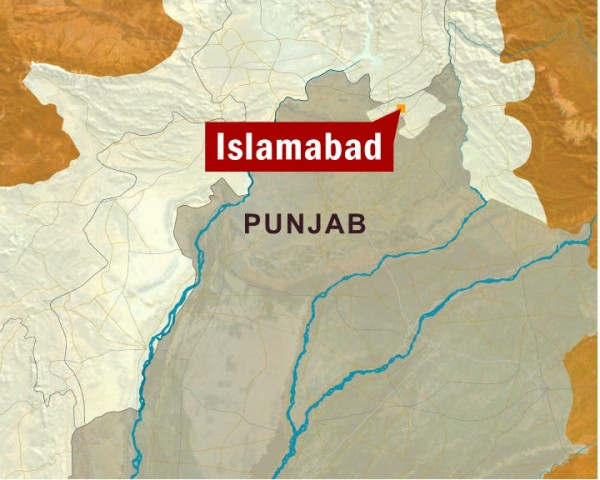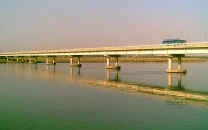CDA unable to sponsor industrial shift

Ijaz Ahmad Sheikh, CDA Deputy Director Planning, said the Authority does not have the resources to acquire 800 acres of land in Sector I-17 to accommodate the steel industries.
The Pakistan Environmental Protection Agency (Pak-EPA) had issued a warning to industrialists in Islamabad last week, stating that they must ensure that pollution control devices were installed in their factories.
Asif Shujja, Director General Pak-EPA, told The Express Tribune the factory owners were given a two-month deadline to either comply with the Agency’s laws or face consequences.
Shujja, who chaired a meeting with CDA officials and steel industry owners last week, said Pak-EPA asked CDA to arrange land to shift these industries from their current location, which is very close to residential areas.
Mohsin Raza, a resident of I-9, complained that use of tyres and substandard rubber products to fuel furnaces of steel factories is the key contributor to air pollution in the area.
Pollution from these factories is directly affecting not only the environment but also residents of nearby areas, he added.
Khalid Javaid, owner of Ittehad Steel Mills Islamabad, told The Express Tribune that shifting 130 functioning industrial units, and other commercial units, in Sectors I-9 and I-10 is a difficult task.
“The government should help us to shift industries from residential areas, because it is just like re-establishing the factories all over again,” he said.
Hameedullah Jan Afridi, Federal Minister for Environment, directed Pak-EPA to bring steel furnaces under Clean Development Mechanism (CDM) so that they could benefit from certified emission reduction (CER) credits by reducing production of CO2, a greenhouse gas which causes depletion of the ozone layer.
The CDM allows emission-reduction (or emission removal) projects in developing countries to earn certified emission reduction (CER) credits… [which] can be traded and sold, and used by industrialised countries to a meet a part of their emission reduction targets under the Kyoto Protocol, according to the UNFCCC website.
The Kyoto Protocol, which came into force in February 2005, is part of the United Nations Framework Convention on Climate Change. Under the protocol, 37 industrialised countries have agreed to limit their greenhouse gas emissions.



















COMMENTS
Comments are moderated and generally will be posted if they are on-topic and not abusive.
For more information, please see our Comments FAQ